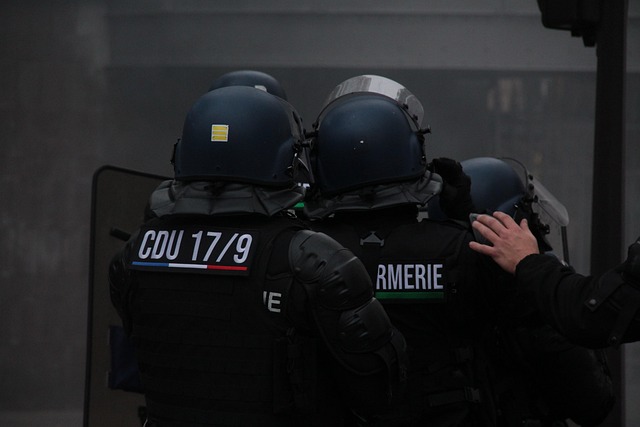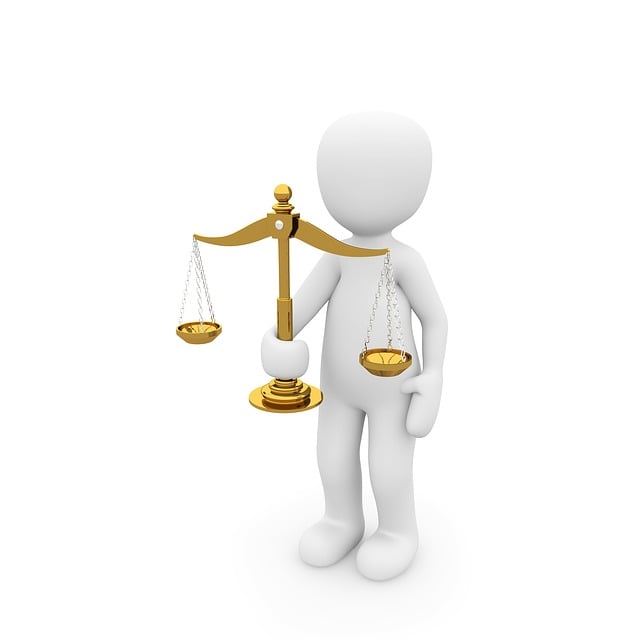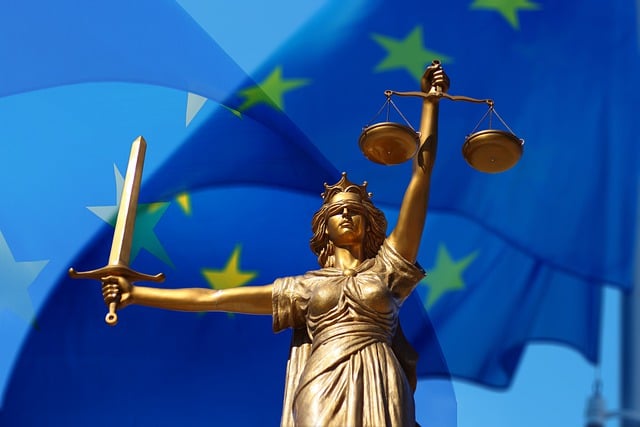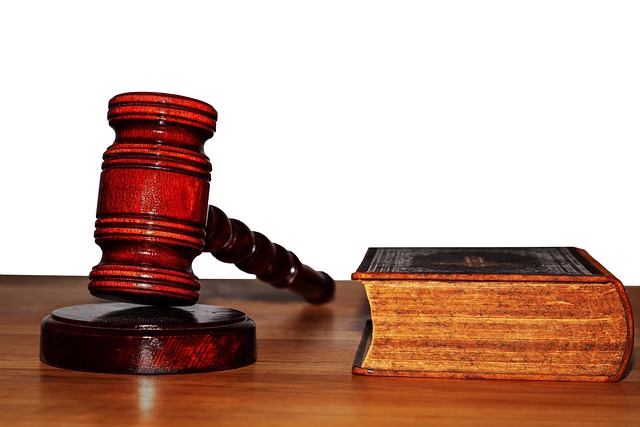The Role of Defense Counsel in Criminal Procedure is pivotal for ensuring fairness and protecting rights within the justice system. These attorneys guide clients from arrest to sentencing, offering critical legal advice, scrutinizing evidence, developing strategies, advocating during trials, negotiating plea bargains, and challenging testimony. Their multifaceted role includes effective communication, building trust, and navigating complex cases like white-collar crime while upholding ethical standards. Defense counsel significantly impact outcomes, shaping philanthropic and political communities by safeguarding civil liberties and maintaining public trust in the justice system.
Criminal Defense Attorneys play a pivotal role in safeguarding individuals accused of crimes. This article delves into the intricate web of the criminal procedure process, highlighting how defense counsel navigate this system. We explore key responsibilities, the importance of effective communication between client and attorney, and ethical considerations that define their practice. Understanding the role of defense counsel is essential, as they ensure fairness and protect the rights of the accused throughout the criminal justice journey.
- Understanding the Role of Defense Counsel
- The Criminal Procedure Process and Defense Attorney Involvement
- Key Responsibilities of a Defense Counselor During Trials
- Effective Communication Between Client and Defense Attorney
- Ethical Considerations for Criminal Defense Attorneys
Understanding the Role of Defense Counsel

The Role of Defense Counsel in Criminal Procedure is a cornerstone of our justice system. These attorneys play a vital role in ensuring that every accused person receives a fair trial. Their primary responsibility is to protect their client’s rights, challenge evidence and procedures, and advocate for alternative outcomes. By examining witness testimonies, questioning evidence presentation, and leveraging legal loopholes, defense counsel can significantly influence the course of a criminal case.
Across the country, successful defense attorneys are known for securing winning challenging defense verdicts. Their expertise lies in navigating complex legal systems, understanding nuances in laws, and presenting compelling arguments. Through zealous advocacy and meticulous preparation, they strive for complete dismissal of all charges where appropriate. This not only protects the rights of their clients but also ensures that justice is served fairly and justly.
The Criminal Procedure Process and Defense Attorney Involvement

The criminal procedure process involves a series of legal steps from arrest to sentencing, with defense attorneys playing a pivotal role in guiding their clients through this complex landscape. Initially, a defendant is presented with charges, often accompanied by an indictment, which outlines the alleged crimes. Defense counsel’s involvement begins at this stage, providing crucial legal advice and ensuring the client understands their rights. They scrutinize the evidence, challenge its admissibility, and formulate a robust defense strategy.
Throughout the process, defense attorneys advocate for their clients’ interests. They may negotiate with prosecutors to secure plea bargains, aiming for a reduced sentence or even a complete dismissal of all charges. In trials, these lawyers present evidence, cross-examine witnesses, and deliver persuasive closing arguments. The goal is not just to avoid indictment but also to protect the defendant’s rights, ensure a fair trial, and ultimately advocate for the best possible outcome within the legal framework, considering the client’s unique circumstances and the dynamics of the case.
Key Responsibilities of a Defense Counselor During Trials

The role of defense counsel in the criminal procedure is multifaceted and crucial, especially during trials. Their primary responsibility is to advocate for their client’s rights and ensure a fair trial process. Defense attorneys play a pivotal part in protecting the interests of individuals accused of crimes, guiding them through complex legal systems that can be intimidating and confusing.
Key among their duties is preparing and presenting a robust defense strategy. This involves thoroughly examining evidence, interviewing witnesses, and constructing arguments to counter the prosecution’s case. During trials, defense counselors engage in cross-examination of witnesses, challenging the credibility and reliability of testimony aimed at convicting their client. They also make legal objections when necessary, ensuring that procedural rules are followed and any irregularities are documented for appeal purposes. Furthermore, they interact with the respective business of law enforcement, prosecutors, and judges to negotiate plea bargains or advocate for alternative sentences, considering the unique circumstances of each case. Across the country, defense counsel’s efforts play a significant role in shaping philanthropic and political communities by upholding justice and safeguarding civil liberties.
Effective Communication Between Client and Defense Attorney

Effective communication is a cornerstone of successful representation by criminal defense attorneys. It involves a dynamic and two-way exchange where the attorney understands their client’s unique situation, goals, and concerns. This relationship is crucial in navigating the complex criminal procedure, ensuring that every step taken aligns with the client’s best interests. A good defense counsel must actively listen, clarify ambiguities, and provide clear explanations to foster trust and ensure his clients feel heard and understood throughout the process.
The role of defense counsel goes beyond mere argumentation in court. It encompasses guiding their clients through the legal system, explaining rights and options, and offering strategic advice. In white-collar defenses, for instance, this might involve delicate discussions about potential plea bargains or the risks and benefits of going to trial. Across the country, effective communication has been recognized as a key differentiator in achieving positive outcomes for his clients, demonstrating the vital link between strong attorney-client relationships and successful criminal defense strategies.
Ethical Considerations for Criminal Defense Attorneys

Criminal Defense Attorneys play a pivotal role in ensuring fairness within the criminal justice system. Their primary ethical responsibility is to provide zealous representation for their clients, while upholding the integrity of the legal process. This delicate balance requires them to advocate aggressively on behalf of their clients, but also to do so ethically and within the bounds of the law.
The Role of Defense Counsel in Criminal Procedure encompasses more than just challenging evidence or crafting legal arguments. It involves a deep understanding of their client’s circumstances, often delving into complex issues such as white-collar and economic crimes across the country. These attorneys must navigate intricate legal landscapes, ensuring that their strategies are both effective and morally sound, thereby maintaining public trust in the justice system.
Criminal defense attorneys play a pivotal role in ensuring fairness within the criminal justice system. By understanding their multifaceted responsibilities, from guiding clients through complex procedures to upholding ethical standards, legal professionals can navigate the intricate landscape of criminal defense effectively. The key lies in fostering robust client communication and staying abreast of procedural nuances, ultimately advocating for individuals’ rights and liberties. Recognizing the significance of the role of defense counsel in the criminal procedure process is essential to maintaining a just and balanced legal ecosystem.






